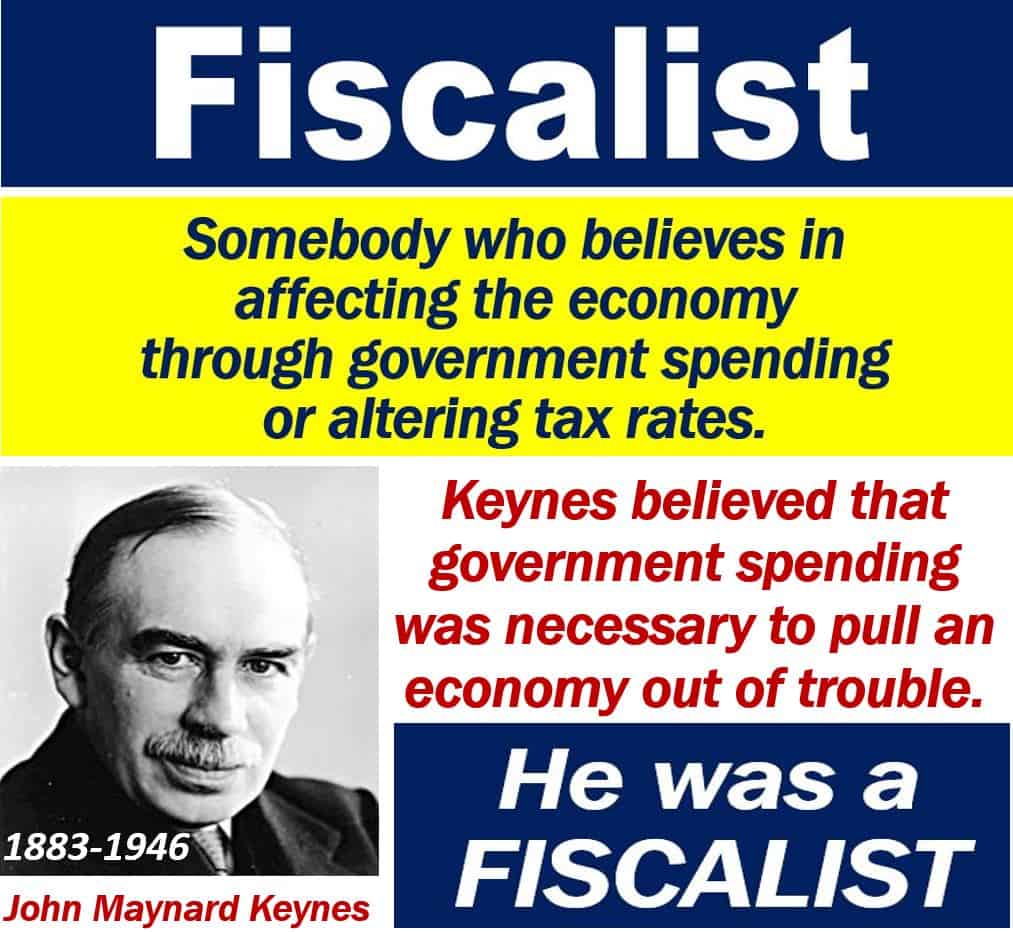A fiscalist is somebody who believes that fiscal policy is vital in economic regulation. A fiscalist, as opposed to a monetarist, is in favor of affecting the economy through fiscal policy.
Fiscal policy refers to government expenditure and revenue. Government mainly gets its revenue through the collection of taxes. However, borrowing and selling state assets are also ways for government to raise revenue.
Fiscalists believe that fiscal stimulus is the way to pull an economy out of, for example, a recession or depression.
Boosting government spending or reducing taxes are examples of fiscal stimulus.
The word ‘fiscal’ means connected to government finances, i.e., public expenditure, tax collection, and government debt.
Therefore, fiscalists are people, usually economists, who believe in fiscal measures when the economy is in trouble.
Many fiscalists, in fact, think that government intervention is good even when the economy is doing well.

Fiscalist – two types
There are two types of fiscalists. One believes in contained fiscalism while the other is a proponent of elevated fiscalism.
Contained fiscalism
Contained fiscalism does not let the economy grow or shrink too much. In other words, it aims to prevent the economy from overheating or plummeting.
Elevated fiscalism
Elevated fiscalism allows the economy to grow as much as possible, but does not let it decline. In other words, the elevated fiscalist does not mind if the economy overheats but does not let it shrink.
Fiscalist vs. monetarist
There are two types of macroeconomic policies:
- Fiscal policy.
- Monetary policy.
Fiscal policy
Fiscal policy means using government expenditure, tax collection, and public debt to influence the economy.
Monetary policy
Monetary policy is all about controlling the money supply. Raising or reducing interest rates, for example, form part of monetary policy.
The government controls fiscal policy while the central bank controls monetary policy.
Monetarists believe that high inflation is the result of raising the money supply too fast. Specifically, raising the money supply faster than GDP growth. GDP stands for gross domestic product.
Fiscalist – Keynesian Theory
According to Keynesian Theory, for an economy to expand and be stable, the government must intervene actively.
John Maynard Keynes (1883-1946), a British economist, put forward what we call Keynesian Theory. Hence, the name.
Keynesian Theory insists that during a recession or depression, public spending is the only way to kick-start the economy.
A typical fiscalist tends to support Keynesian Theory.
